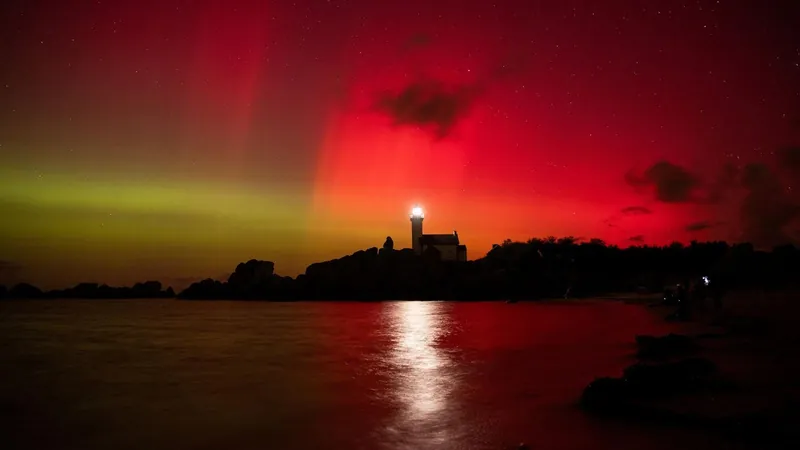
Northern Lights Alert: Catch the Spectacular Aurora Borealis Tonight!
2024-10-24
Author: Mei
Overview
Exciting news for stargazers across the northern United States! A forecast from the National Oceanic and Atmospheric Administration (NOAA) indicates that a significant portion of the country could witness the mesmerizing aurora borealis tonight. What's more, NASA suggests that as solar activity peaks, this could be just the beginning of many more celestial displays to come.
Where to Catch the Northern Lights
Tonight's aurora viewing opportunities are concentrated in states near the Canadian border, with the best chances for sightings reported in northern Washington, Idaho, Montana, Minnesota, and Wisconsin. Meanwhile, states with lesser likelihood include South Dakota, Michigan, and northern Maine. Those looking for spectacular views may want to venture further north into Canada and Alaska, where the northern lights are more likely to paint the skies.
Maximize Your Aurora Viewing Experience
To make the most of your aurora hunting, NOAA recommends finding a dark location away from city lights. High vantage points can enhance visibility, with optimal viewing times typically between 10 p.m. and 2 a.m. local time. Grab your warm clothing and hot beverages for a cozy viewing experience under the stars!
Tips for Capturing the Perfect Shot
For those hoping to capture the aurora on camera, local tourism websites suggest using a night mode on smartphones combined with longer exposure settings. If you're using a standard camera, experts recommend focusing on distant horizons with a wide aperture, low shutter speed, and a high ISO setting. These adjustments will significantly improve your chances of photographing this natural wonder.
What's Causing This Celestial Marvel?
The phenomena can be attributed to the sun’s current 11-year cycle, known as Solar Cycle 25, which has reached its peak. This period is marked by a surge in sunspots and coronal mass ejections—bursts of plasma and magnetic fields that can push the auroras further south than usual. Earlier this month, one geomagnetic storm associated with a sunspot brought the auroras all the way down to Texas, leaving many awestruck and hopeful for ongoing celestial events.
A Cosmic Bonus
In addition to the northern lights, skywatchers have been treated to other rare celestial events recently, including a comet that won’t be seen again for 80,000 years and another that may even be visible during daylight. Keep your eyes to the sky, as the universe has much more in store for us!
So, grab your friends, head to a dark spot, and enjoy the captivating dance of lights tonight. You won’t want to miss this magical experience!

 Brasil (PT)
Brasil (PT)
 Canada (EN)
Canada (EN)
 Chile (ES)
Chile (ES)
 España (ES)
España (ES)
 France (FR)
France (FR)
 Hong Kong (EN)
Hong Kong (EN)
 Italia (IT)
Italia (IT)
 日本 (JA)
日本 (JA)
 Magyarország (HU)
Magyarország (HU)
 Norge (NO)
Norge (NO)
 Polska (PL)
Polska (PL)
 Schweiz (DE)
Schweiz (DE)
 Singapore (EN)
Singapore (EN)
 Sverige (SV)
Sverige (SV)
 Suomi (FI)
Suomi (FI)
 Türkiye (TR)
Türkiye (TR)